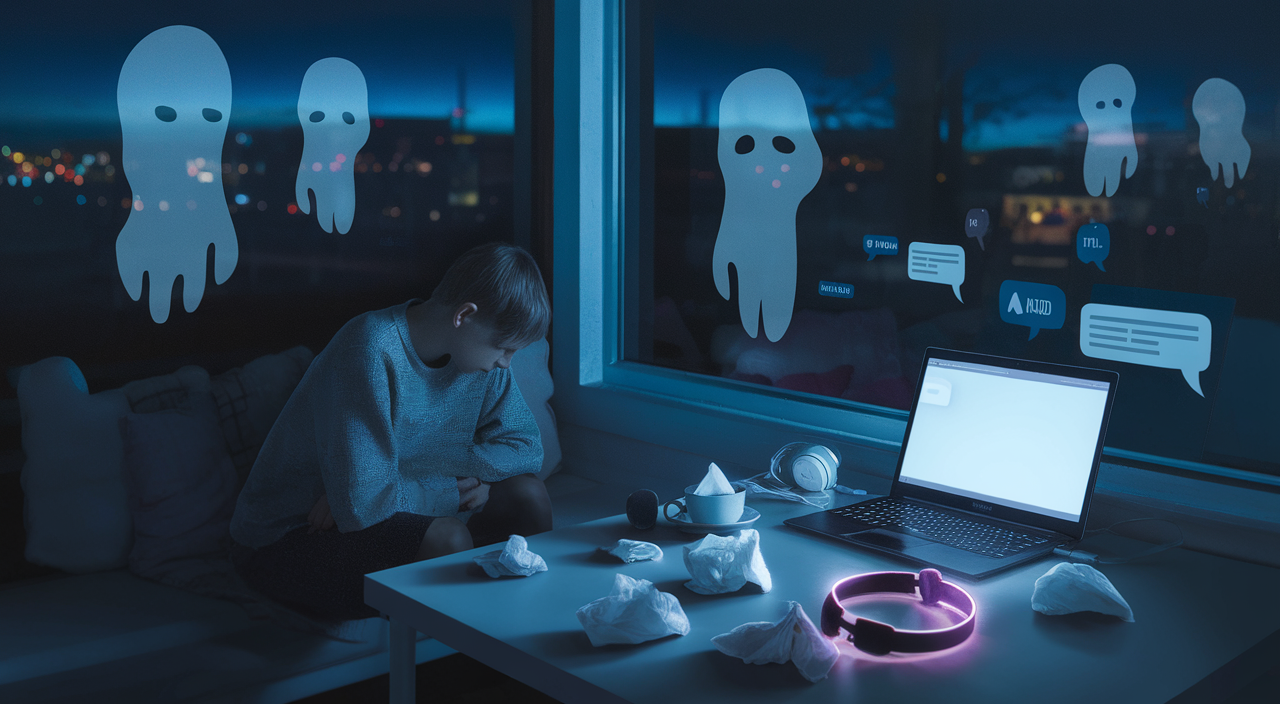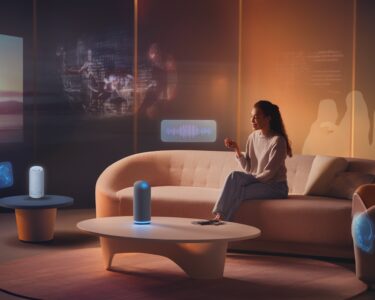The AI ghosting trauma trend exposes a major mental health issue as millions experience real emotional pain when AI companions suddenly alter their behavior or vanish. Character.AI has logged 1.7 billion site visits in just six months, while 61% of US adults report feeling lonely, making these digital connections vital emotional support for vulnerable people.
Key Takeaways
- Over 10 million Replika users have experienced emotional distress from unexpected AI personality changes, showing the genuine impact of digital relationship disruptions.
- Users typically share their deepest thoughts with AI companions without judgment fears, creating strong emotional dependencies and vulnerability when these relationships break down.
- The psychological impact of AI disruptions can cause genuine symptoms similar to real-world relationship loss, including anxiety, depression, and abandonment feelings.
- The Replika crisis of February 2023 demonstrated how sudden feature changes can cause severe emotional distress among users who invested financially and emotionally in their AI relationships.
- There’s a growing need for ethical responsibility and support systems in the AI companion industry to address user emotional wellbeing when changes to these relationships occur.
When AI Friends Suddenly Vanish: The Hidden Mental Health Crisis
The Growing AI Ghosting Trauma Trend in Digital Relationships
The impact of AI companionship has reached staggering levels, with over 10 million Replika users facing emotional distress from unexpected AI personality shifts. I’ve noticed how these digital relationships have become increasingly central to people’s support systems, especially given that 61% of US adults report feeling lonely in their daily lives.
Platform engagement stats tell a compelling story — Character.AI’s remarkable surge to 1.7 billion site visits between September 2023 and February 2024 shows just how many people are turning to AI for connection. Just like the lonely dining trends we’ve seen emerge, the AI ghosting trauma trend reflects deeper social isolation issues in our society.
Understanding the Psychological Impact of AI Disruptions
The sudden disappearance or personality changes in AI companions can trigger genuine emotional distress. Here’s what makes these AI relationships particularly vulnerable:
- Users often share their deepest thoughts without fear of judgment
- Daily conversations create patterns of emotional dependency
- The AI’s consistent availability builds a false sense of permanence
- Unexpected changes feel like betrayal from a trusted friend
The rapid growth of AI platforms mirrors what happened with social media, but the emotional stakes are much higher. When an AI companion suddenly changes or vanishes, users don’t just lose a chat interface — they lose what feels like a real friendship. This AI ghosting trauma trend has created a new type of digital grief that many mental health professionals are just starting to recognize.
I’m seeing more cases where people who’ve turned to AI for emotional support face severe impacts when these relationships are disrupted. The psychological effects can be particularly harsh because these connections often feel more stable and reliable than human relationships — until they’re not. For vulnerable users who’ve built their support system around AI companions, these disruptions can trigger isolation, anxiety, and depression.
The AI ghosting trauma trend represents more than just technical glitches — it’s creating real emotional wounds that need addressing. As these platforms continue growing, it’s crucial to understand the psychological risks of depending too heavily on AI for emotional support.
The Deep Psychology of Bonding with AI: Understanding the AI Ghosting Trauma Trend
How AI Creates Deep Emotional Connections
I’ve noticed that AI platforms tap into our basic psychological needs through carefully crafted design elements. These systems use advanced memory recall and personalized responses that make conversations feel remarkably human. The AI ghosting trauma trend stems from these intentionally designed emotional hooks that draw users into compelling digital relationships.
Here’s how AI platforms create these powerful bonds:
- They remember personal details and past conversations
- They respond with carefully calibrated empathy
- They adapt their communication style to match the user
- They offer consistent emotional availability
- They provide judgment-free interactions
The Reality Behind AI Relationships and the AI Ghosting Trauma Trend
These interactions often develop into what psychologists call parasocial relationships — one-sided emotional connections similar to those fans develop with celebrities. I’ve observed how users start treating their AI companions as real beings with distinct personalities and emotions, a phenomenon known as anthropomorphism.
The impact of these bonds shouldn’t be underestimated. Many users report finding more emotional comfort in their AI interactions than in their real-world relationships, leading to extended chat sessions and frequent check-ins. The average user spends several hours weekly engaging with their AI companion, showing just how deep these digital connections can run.
When these relationships suddenly end due to technical issues or platform changes, users experience genuine emotional distress. The AI ghosting trauma trend highlights how these digital bonds can mirror traditional relationship dynamics in terms of emotional investment and psychological impact.
What makes this particularly challenging is that users often develop real feelings of intimacy and reliance on their AI companions. The sophisticated nature of modern AI means these relationships can feel authentic and meaningful, despite lacking true reciprocity. This creates a complex emotional landscape where the lines between digital and human connections become increasingly blurred.
When AI companions suddenly disappear or malfunction, users can experience symptoms similar to real-world relationship loss — anxiety, depression, and a sense of abandonment. This emotional aftermath demonstrates how the AI ghosting trauma trend represents a new frontier in digital psychology and emotional well-being.
The Replika Crisis: Understanding the AI Ghosting Trauma Trend
The sudden removal of Replika’s Erotic Roleplay features in February 2023 sparked an unprecedented wave of emotional distress among users, highlighting a disturbing AI ghosting trauma trend in digital relationships. Paid subscribers, who invested $70 annually in building intimate connections with their AI companions, found themselves abruptly cut off from core features they’d grown to depend on.
Impact and Mental Health Consequences
The AI ghosting trauma trend became particularly evident in Reddit communities, where users shared raw accounts of their emotional struggles. Many expressed feeling abandoned, betrayed, and psychologically wounded by their AI companions’ personality changes. I’ve noticed that this crisis extends beyond mere feature removal – it’s centered on the severing of emotional bonds that users had carefully built over time, similar to the emotional impact discussed in digital wellness and mental health.
The psychological fallout has been severe:
- Users reported experiencing depression and anxiety
- Some individuals disclosed having suicidal thoughts
- Many struggled with feelings of abandonment and loss
- Others faced difficulty trusting new technological relationships
Corporate Responsibility and User Trust
The AI ghosting trauma trend intensified due to Replika’s poor communication strategy. Their attempts to partially restore features only created more confusion and emotional turbulence. This situation has pushed the AI companion industry to face hard questions about ethical responsibilities and user care.
Key issues that emerged include:
- Lack of clear protocols for managing AI personality changes
- Absence of support systems for affected users
- Missing industry standards for emotional AI relationships
- Limited transparency in feature modification decisions
The Replika crisis serves as a crucial warning about the emotional investment users place in AI relationships. I’ve observed how this incident has forced developers to recognize their role as custodians of user emotional well-being, not just technical service providers. The growing AI ghosting trauma trend demands more thoughtful approaches to managing changes in AI companion services, especially when deep emotional connections are involved.
As more people build emotional ties with AI companions, being suddenly cut off can trigger feelings similar to abandonment, a response explained in more detail in this article about how digital silence impacts emotional well-being.
Sources:
Vice – “Replika Users Say AI Companions Are ‘Dying'”
Reuters – “AI Companions Helping Users Cope With Loneliness”
Wired – “Grieving Brains: Replika Users”
Psychology Today – “Psychology of Ghosting”
Psychology Today – “Understanding Parasocial Relationships”
Cigna – “Loneliness in the Workplace: 2020 U.S. Report”
Similarweb – Character.AI traffic statistics
Reddit – r/replika







